Introduction
While an advantage is relative, polyphasic sleeping does, both anecdotally and scientifically, have certain advantages compared to monophasic sleep. However, because of the structuring of mainstream 9-to-5 occupations today, not everyone can afford a polyphasic schedule.
This post only details the perks that adapted and perpetual polyphasic sleepers experience. In no way do we say that monophasic sleep does not work.
Wake Time Advantage
Polyphasic sleeping has a clear advantage of the extra waking hours, on most reducing schedules. For example, Everyman 1 can give 2 hours of extra wake time just in the morning compared to monophasic sleep.
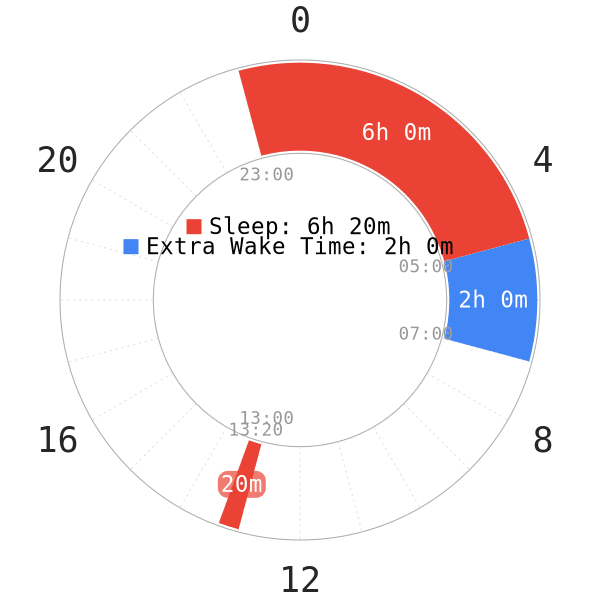
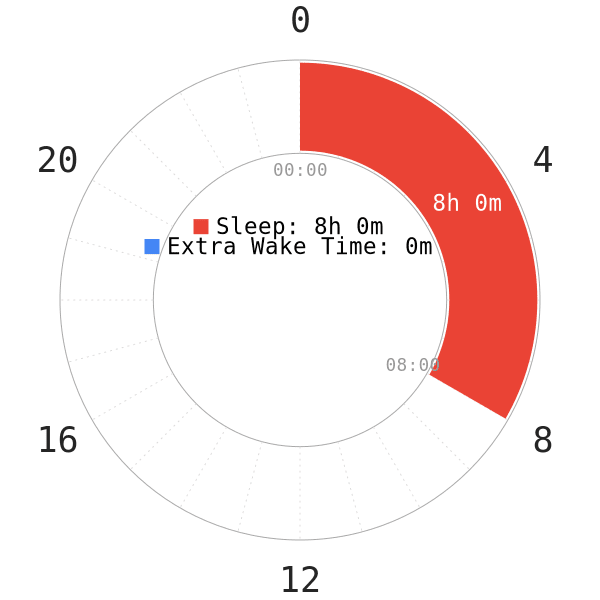
Polyphasic sleep can increase the time per day you spend awake; the most extreme schedules lowering total time asleep to a mere 2 hours daily. However, these may not be sustainable long-term for all people and likely pose unidentified health risks.
The increased waking time is interesting for many people who rarely get time for themselves. This allows for activities that the normal monophasic sleep hours would hinder. Nevertheless, using the extra time effectively is equally, if not more important, than getting the most out of it.
Sleep Quality Advantage
Polyphasic sleep can improve overall sleep quality by doing the following:
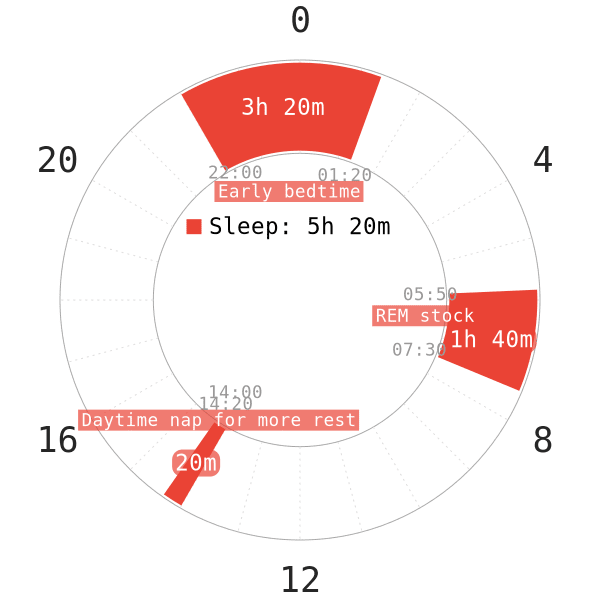
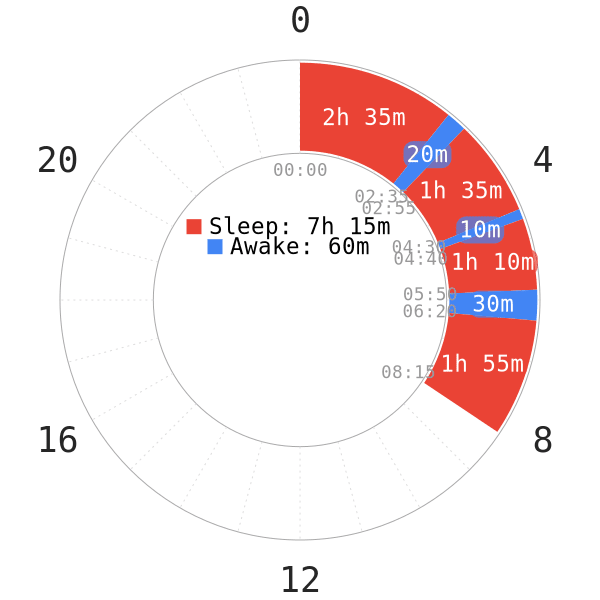
- Ensuring that your body’s natural rhythms align with your sleep times.
- Prioritizing the most important stages of sleep (SWS and REM)
- Reducing annoying sleep interruptions.
- Reorganizing the overall sleep architecture in each sleep block if there is no sleep reduction.
All in all, with the consistency of sleep times, this raises overall sleep quality.
Wakefulness Advantage
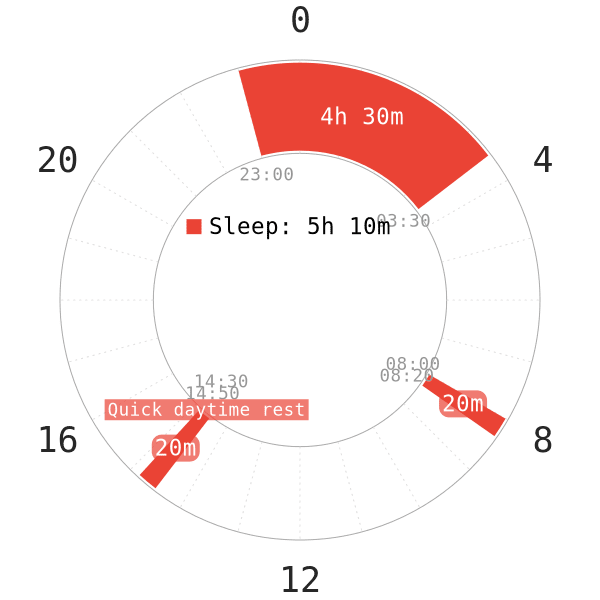
Short naps throughout the day can increase wakefulness. This in return can significantly improve alertness, productivity and creativity during waking periods. Frequent sleep also prevents sleepiness compared to a single (and maybe disrupted!) monophasic block.
Dream Recall Advantage
Due to REM naps, one’s ability to recall dreams improves significantly from sleeping polyphasically. The amount of REM proportional to the amount of total sleep also increases; one’s sleep will end near REM sleep, which boosts the dream recall possibility.
Although the results vary among adapted sleepers, a survey on 42 polyphasic sleepers has confirmed that polyphasic sleep does enhance dream recall ability, even in poor dream recallers.
Self-care Advantage

Since polyphasic sleepers are bound to have more waking hours each day, they can also spend more time for self-care. These activities include, but not limited to:
- Meditation
- Yoga
- More entertainment time besides a busy work schedule
- More time to prepare and organize activities that are most suitable at peaceful nighttime hours.
Potential Lucid Dreaming Advantage
This builds on the dream recall utility. Because one is able to predict when dreams are going to occur, they can train lucid dreaming techniques. Several people have also become lucid dreamers simply from adapting to a polyphasic sleeping schedule without any prior experience.
Faster Sleep Onset
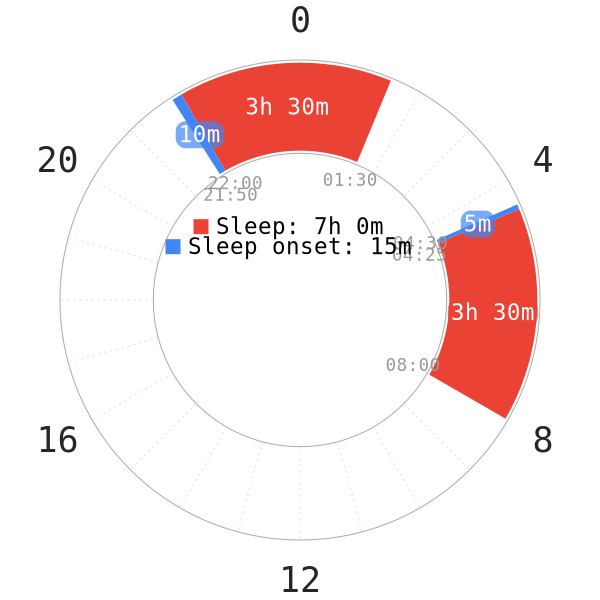
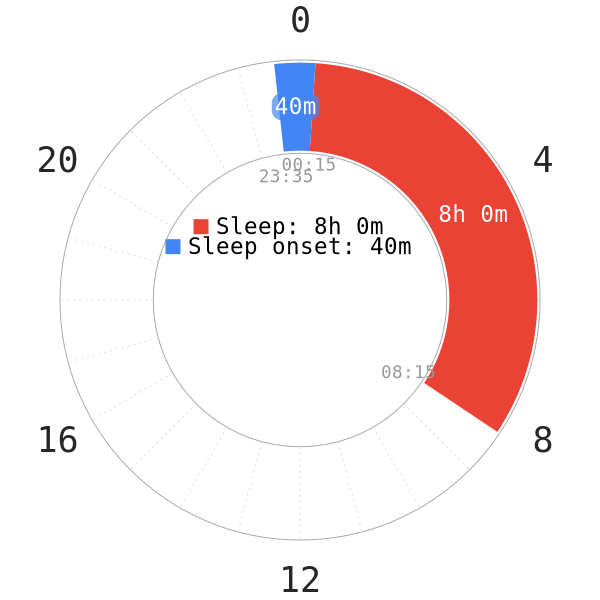
Thanks to rigid sleep times and sleep deprivation fighting mechanisms, one will learn to fall asleep fast from a polyphasic sleeping schedule.
- Some people have even used polyphasic sleep to manage their insomnia.
- People have regularly managed to reduce their sleep onset from as high as a few hours to a couple of minutes.
- Many monophasic sleepers have problems falling asleep at night, due to common stress from work, other worries and concerns about personal health, lack of sleep hygiene, etc.
Many polyphasic sleep proponents use these advantages to suggest that polyphasic sleep is strictly better than monophasic sleep. Likewise, everyone should become polyphasic sleepers.
However, polyphasic sleep also has some substantial downsides that make it incompatible with certain lifestyles or situations.
General Benefits of Napping
There are several benefits of napping during the day! Here are a few points that nappers may benefit from:
- Alzheimer’s prevention1.
- Improved physical and mental health2-3
- Increased sleep quality2-3
- Increased alertness2,4-15
- Augmented productivity2.
- Improved vigilance5,16
- Boosted logical reasoning5.
- Improved reaction time7,9,10,14,16-19
- Reduced fatigue7,11,18
- Improved coordination8,20
- Decreased sleep latency9.
- Improved task performance and accuracy10,11,15,18,20,21
- Enhanced learning on perceptual tasks19,22
- Improved mood10.
- Improved memory consolidation2,23-26
- Enhanced attention27.
Thus, even if reducing the total sleep time is not on your agenda, it is clearly beneficial and reasonable to add a daytime nap. Furthermore, a veteran napper can squeeze as much rest as possible when required to take a nap. This would then allow them to continue working with better efficiency than non-nappers in emergency situations.
Conclusion
Polyphasic sleep advantages are many, and in a way underrated. It may be an alternate way to sleep to better your overall sleep quality and well-being. In addition, polyphasic sleep will also teach you to manage your waking hours better and how to take care of yourself.
The more available time from better time management will open up for more activities and hobbies you thought you could never realize.
Main author: Crimson & GeneralNguyen
Page last updated: 1 April 2021
Reference
- Asada T, Motonaga T, Yamagata Z, Uno M, Takahashi K. Associations between retrospectively recalled napping behavior and later development of Alzheimer’s disease: association with APOE genotypes. Sleep. 2000;23(5):629-634. [PubMed]
- Tanaka H, Shirakawa S. Sleep health, lifestyle and mental health in the Japanese elderly: ensuring sleep to promote a healthy brain and mind. J Psychosom Res. 2004;56(5):465-477. [PubMed]
- Tanaka H, Taira K, Arakawa M, et al. Effects of short nap and exercise on elderly people having difficulty in sleeping. Psychiatry Clin Neurosci. 2001;55(3):173-174. [PubMed]
- Milner C, Cote K. Benefits of napping in healthy adults: impact of nap length, time of day, age, and experience with napping. J Sleep Res. 2009;18(2):272-281. [PubMed]
- Bonnet M. The effect of varying prophylactic naps on performance, alertness and mood throughout a 52-hour continuous operation. Sleep. 1991;14(4):307-315. [PubMed]
- Tietzel A, Lack L. The recuperative value of brief and ultra-brief naps on alertness and cognitive performance. J Sleep Res. 2002;11(3):213-218. [PubMed]
- Sallinen M, Härmä M, Akerstedt T, Rosa R, Lillqvist O. Promoting alertness with a short nap during a night shift. J Sleep Res. 1998;7(4):240-247. [PubMed]
- SMITH SS, KILBY S, JORGENSEN G, DOUGLAS JA. Napping and nightshift work: Effects of a short nap on psychomotor vigilance and subjective sleepiness in health workers. Sleep and Biological Rhythms. 2007;5(2):117-125. doi:10.1111/j.1479-8425.2007.00261.x
- Gillberg M. The effects of two alternative timings of a one-hour nap on early morning performance. Biol Psychol. 1984;19(1):45-54. [PubMed]
- Caldwell J, Caldwell J. Comparison of the effects of zolpidem-induced prophylactic naps to placebo naps and forced rest periods in prolonged work schedules. Sleep. 1998;21(1):79-90. [PubMed]
- Hayashi M, Motoyoshi N, Hori T. Recuperative power of a short daytime nap with or without stage 2 sleep. Sleep. 2005;28(7):829-836. [PubMed]
- Taub J. Effects of habitual variations in napping on psychomotor performance, memory and subjective states. Int J Neurosci. 1979;9(2):97-112. [PubMed]
- MILNER CE, COTE KA. Benefits of napping in healthy adults: impact of nap length, time of day, age, and experience with napping. Journal of Sleep Research. 2009;18(2):272-281. doi:10.1111/j.1365-2869.2008.00718.x
- Dinges D, Orne M, Whitehouse W, Orne E. Temporal placement of a nap for alertness: contributions of circadian phase and prior wakefulness. Sleep. 1987;10(4):313-329. [PubMed]
- Hayashi M, Ito S, Hori T. The effects of a 20-min nap at noon on sleepiness, performance and EEG activity. Int J Psychophysiol. 1999;32(2):173-180. [PubMed]
- Purnell M, Feyer A, Herbison G. The impact of a nap opportunity during the night shift on the performance and alertness of 12-h shift workers. J Sleep Res. 2002;11(3):219-227. [PubMed]
- Schoenberg M, Ts’o T, Meisel A. Graves’ disease manifesting after maintenance lithium. J Nerv Ment Dis. 1979;167(9):575-577. [PubMed]
- Porta F, Petrini C, Perolini S, et al. Additional data on albumin variants in Italy (one new type of slow variant, two new homozygotes for rare variants, four cases of analbuminemia). Ric Clin Lab. 1980;10(1):277-280. [PubMed]
- Batéjat D, Lagarde D. Naps and modafinil as countermeasures for the effects of sleep deprivation on cognitive performance. Aviat Space Environ Med. 1999;70(5):493-498. [PubMed]
- Creighton C. Effects of afternoon rest on the performance of geriatric patients in a rehabilitation hospital;: a pilot study. Am J Occup Ther. 1995;49(8):775-779. [PubMed]
- Takahashi M, Fukuda H, Arito H. Brief naps during post-lunch rest: effects on alertness, performance, and autonomic balance. Eur J Appl Physiol Occup Physiol. 1998;78(2):93-98. [PubMed]
- Mednick S, Nakayama K, Stickgold R. Sleep-dependent learning: a nap is as good as a night. Nat Neurosci. 2003;6(7):697-698. [PubMed]
- Tucker M, Hirota Y, Wamsley E, Lau H, Chaklader A, Fishbein W. A daytime nap containing solely non-REM sleep enhances declarative but not procedural memory. Neurobiol Learn Mem. 2006;86(2):241-247. [PubMed]
- LAHL O, WISPEL C, WILLIGENS B, PIETROWSKY R. An ultra short episode of sleep is sufficient to promote declarative memory performance. J. 2008;17(1):3-10. doi:10.1111/j.1365-2869.2008.00622.x
- Schmidt C, Peigneux P, Muto V, et al. Encoding difficulty promotes postlearning changes in sleep spindle activity during napping. J Neurosci. 2006;26(35):8976-8982. [PubMed]
- Lahl O, Wispel C, Willigens B, Pietrowsky R. An ultra short episode of sleep is sufficient to promote declarative memory performance. J Sleep Res. 2008;17(1):3-10. [PubMed]
- De B. [Uncertainty variants in population forecasts for the Netherlands]. Maandstat Bevolking. 1991;39(9):31-39. [PubMed]
